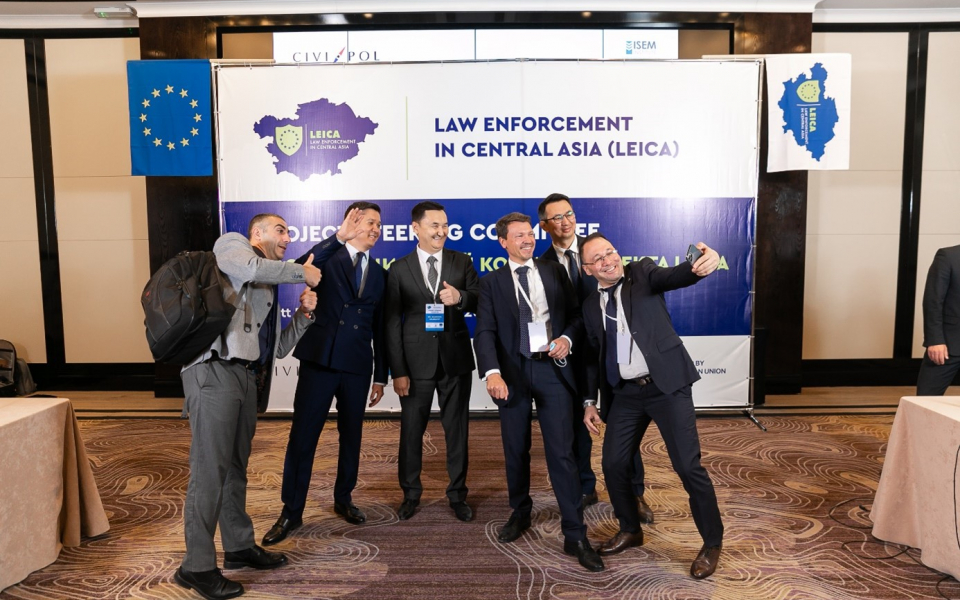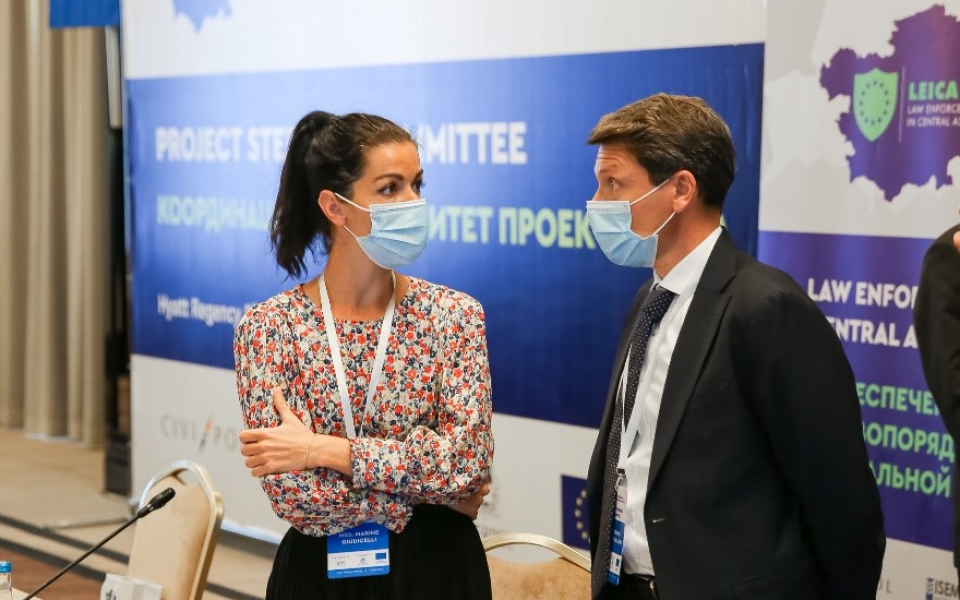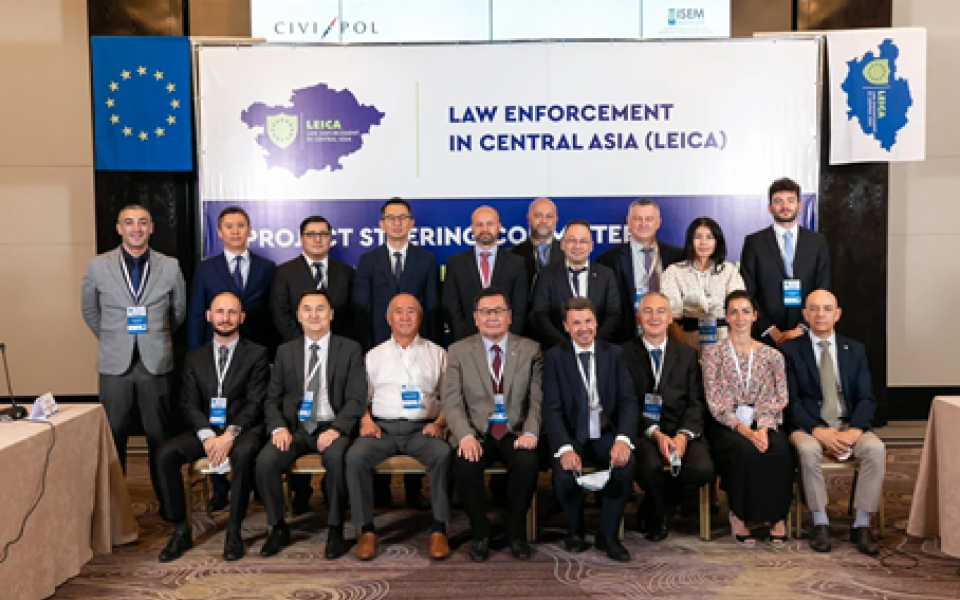On 15 June 2021, the first project steering committee (PSC) of the Law Enforcement in Central Asia (LEICA) project was held in Bishkek, Kyrgyzstan.
The consortium composed from CIVIPOL (France) and ISEM Institute (Slovakia) with Interpol support started the implementation of the EU-funded LEICA in September 2020 by establishment of the main LEICA office in Bishkek, where the key experts´ team is located. The overall objective of the project is to strengthen the capacity of government agencies in Central Asia to enhance security at both the national and regional levels by providing technical assistance at the national level based on an in-depth analysis of each country's needs, as well as thematic training at the regional level.
This event brought together the project team with the beneficiaries from the 5 Central Asian republics, the European Union delegations in the corresponding countries, the project manager of FPI Pakistan and the consortium members. The objective was to introduce the main outcomes from Inception phase including the needs assessment, which lasted 9 months. During the inception phase, the experts developed questionnaires and conducted missions to the beneficiary countries to analyze their needs related to fight against terrorism. Subsequently, work plans were developed and discussed together with individual countries. Finally, work plans were commented and pre-approved during validation workshops by four countries. The workplans will be further discussed with the relevant LEAs.
During the PSC, all strategic and technical results including the work plans for the implementation phase were presented. The activities described in the work plans can be summarized in the following prioritized groups that outline LEICA’s work for the implementation phase, both at regional and national level:
1) Counter-terrorism financing, as a number one priority area LEICA plans to address in full, in cooperation with EAG, and coordination with UNODC & OSCE.
2) Prisons and radicalization is a key issue to address in the region, since experience has demonstrated that radical ideas leading to violence can ignite and spread more easily within the prison communities.
3) Interpol and the exchange of information: The systematic and immediate exchange of information between LEAs is essential to effective investigations and prevention of terrorism.
4) Investigations and prosecutors: LEICA strongly proposes to focus on prosecutors as a core element in the investigation of terrorism, as they supervise the investigative activities, making sure the rule of law is fully respected
5) Forensics is an evolving science: forensic processes and staff need continuous updating, so the evidence provided to Court are of good quality and endorsed by international standards, and thus cannot be easily rejected.
6) Preparedness to prevent terrorist attacks to critical infrastructures, like airports, train stations, energy production centres and water resources needs continued update and testing.
7) Special attention will be given to the use of dogs to prevent terrorist use of explosives, or to fight terrorist financing by cash couriers through borders; there is already a good level of preparedness on the use of dogs by Law Enforcement, which are competing to obtain international recognition.
The event was very successful since all the beneficiaries had jointly pre-approved the workplans presented during the project steering committee and underlined their wish and commitment to contribute actively in their implementation.


